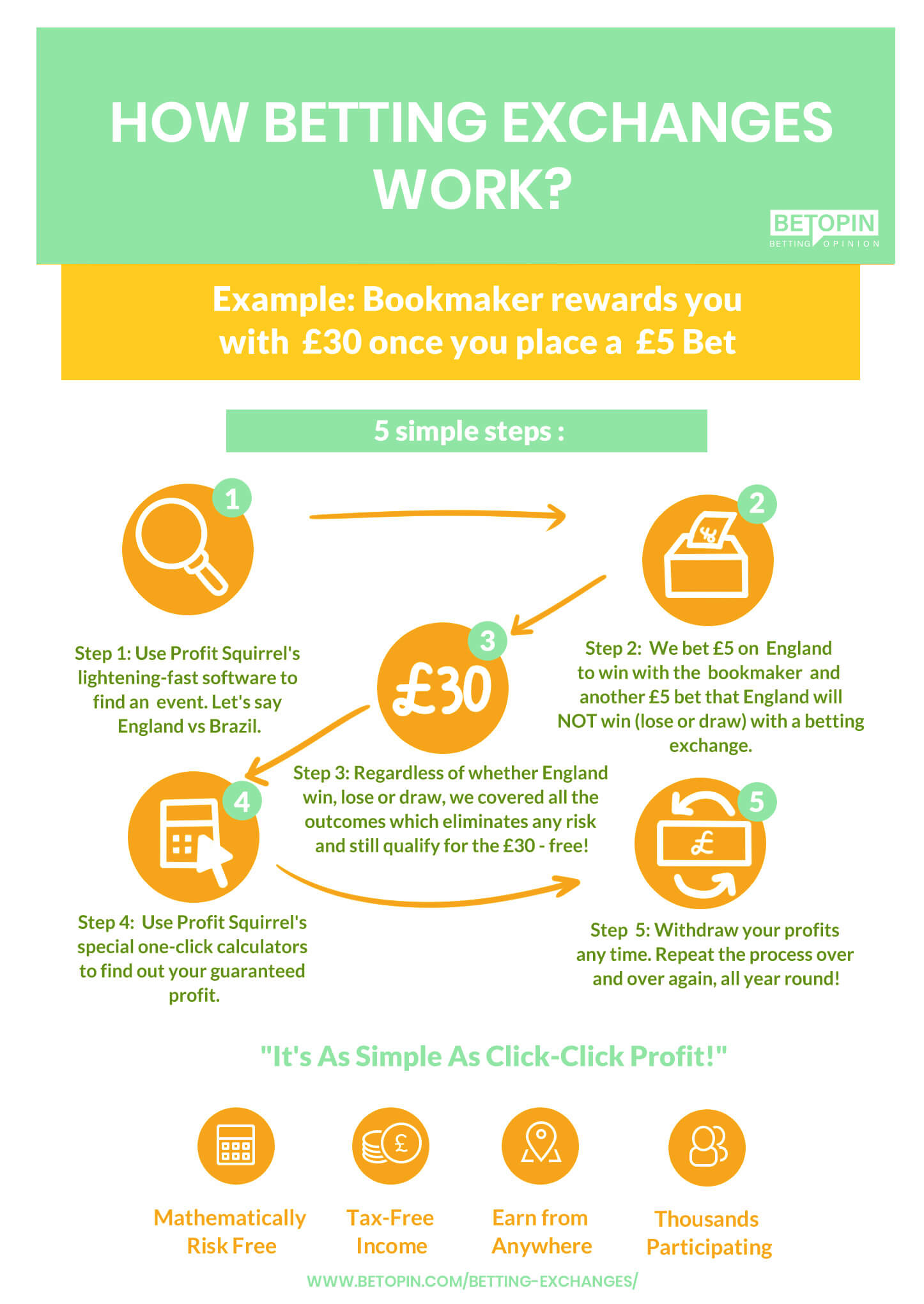The same way the internet has revolutionised the gambling industry as a whole, the betting exchanges have rocked the sports betting market and brought a new dimension to betting. The concept of betting exchanges is simple yet incredibly effective. Instead of placing bets on events with fixed odds, betting exchanges allow players to bet against each other, rather than against the bookmaker.
This peer-to-peer betting model has been quite appealing to all the punters who were looking for something even more exciting than regular betting and an extra competitive ingredient in the betting mix that powered the incredible rise in the popularity of exchange betting bookmakers.
Betting Exchanges Explained
Betting exchanges function much in the same way as stock exchanges, but instead of having share trading, we have traded with betting odds on sporting events, politics, and more. In betting exchanges, punters get to choose one of the two sides to every bet: to back or to lay a bet.
In essence, backing a bet means that you are confident that an outcome of a game or match will happen, whereas laying a bet means that you are assuming the role of a traditional bookmaker and betting that the particular outcome won’t happen.
Once the ‘backers’ and ‘layers’ are matched on an event and have agreed on the odds of an outcome, the bet is considered concluded and gets verified by the platform.
There are a few other things you need to note about the betting exchanges. First of all, the odds in the betting exchanges are presented in decimal format, as it is easier to read and understand.
Secondly, the betting exchange’s function is that of a middleman. For a bet to be officially struck and verified, it has to be matched by another customer who will either have to back it or lay, depending on your choice. If you don’t get a match on your bet and it remains unmatched, your stake is returned.
Betting Exchanges vs Traditional Bookmakers
Betting exchanges and traditional bookmakers indeed share a few similarities; however, the concepts differ significantly. First and foremost is the fact that betting exchanges allow punters to bet against other players and not the bookmaker, which is the case with traditional sports betting.
Next up is the ability to lay a bet. Whereas laying a bet was the sole prerogative of bookies, now players who have a different opinion on the outcome of a sporting event can match the odds of backers and bet that something won’t happen. In that regard, players who lose their bets lose them to fellow players and not bookmakers.
In betting exchanges, players agree on the odds of an event, unlike the traditional bookmakers that have fixed odds on events. Therefore, you can expect to see much higher odds on some games in betting exchanges than in the conventional bookmakers.
Last but not least is the fact that betting exchanges work on a commission that is between 2 and 5% of your winnings. This means that betting exchanges want you to win, and win as much as possible, unlike traditional bookmakers.
What Powers the Rise of Betting Exchanges
According to the data provided by the United Kingdom Gambling Commission, the betting exchange had a market share worth over £170m in 2017. Even though these numbers are just a tiny share of the traditional sportsbooks and online casinos, they keep on growing year after year.
The major reason for the growth of betting exchanges is their unique nature where players have a peer-to-peer showdown that drives the competitive spirit. Besides, betting exchanges seem to be improving their offer of sports and fixtures by adding in-play betting and other betting options that will help close the gap between the traditional bookmakers and betting exchanges in terms of attracting more players and having better financial success.
What’s more, we are seeing more and more betting exchanges on the market, like Betfair, Matchbook, and Smarkets, offering enticing bonuses and promotions to new punters that help them test the betting exchange without risking their own money.
What Does the Future Hold for Betting Exchanges?
The future of betting exchanges seems bright, as more and more customers are focused on the key advantages of betting exchanges — better odds, transparency, and the competitive aspect of things. The number of betting exchanges is growing steadily as a result of higher interest from players, and what was once a market dominated by Betfair is now a market that features BetDaq, Smarkets, Matchbook, and many others.
However, some of the key obstacles to betting exchanges growing even faster are the legal aspects, so it remains to be seen if betting exchanges are going to be accepted by gambling jurisdictions in countries that still haven’t jumped the bandwagon.
If betting exchanges continue to improve the user experience and educate players in the ways of betting exchanges, it will result in even more players switching to betting exchanges.













